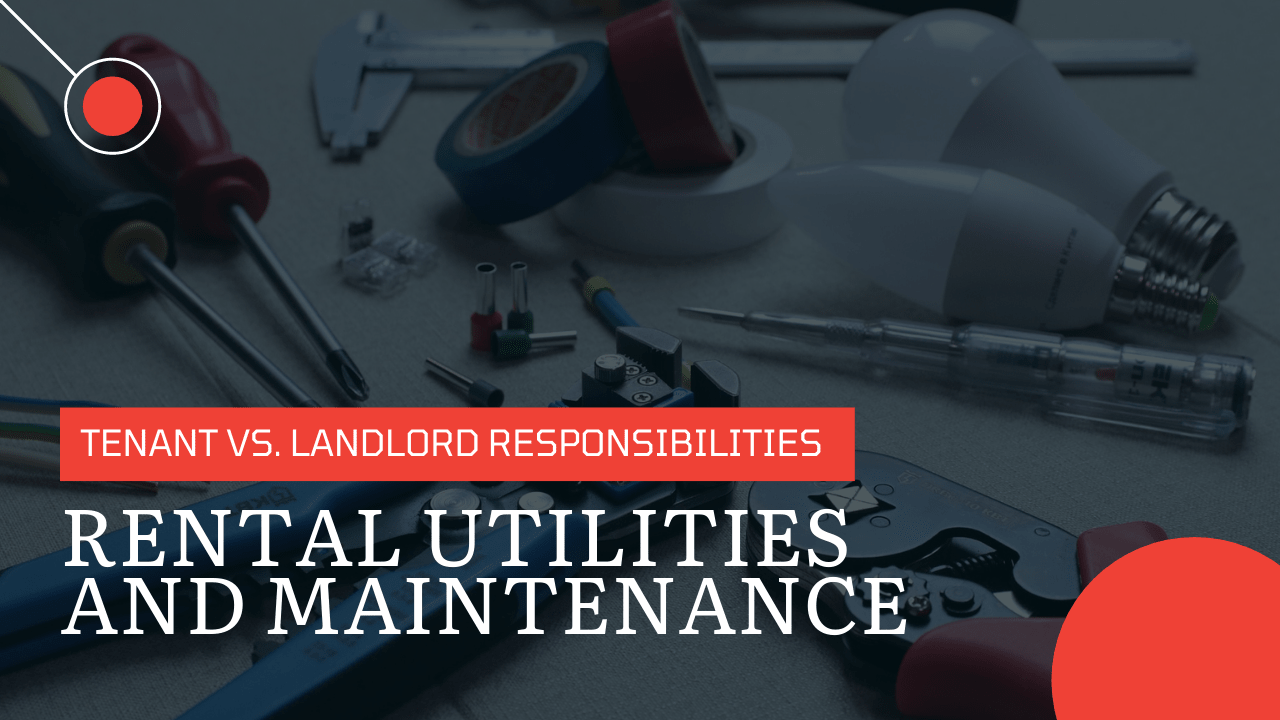Tenant vs. Landlord Responsibilities for Rental Utilities and Maintenance | Explained by Jacksonville Property Managers
Landlords and tenants each have their own unique set of responsibilities when it comes to maintaining a Jacksonville rental home and keeping the lights and water on. Sometimes, those responsibilities overlap, and there are also occasions where the accountability depends on the type of property you’re renting out and the specific expectations you have for your resident.
The best way to avoid any confusion or conflict is by creating a specific lease agreement that clearly indicates which party needs to be responsible for each part of maintaining the property and setting up the utility accounts.
Jacksonville Landlord Maintenance Responsibilities
A landlord’s most essential responsibility is to provide a property that is safe, habitable, and well-maintained. Landlords are responsible for repairing and replacing anything that’s damaged or not working before the lease starts.
During the tenancy, landlords are required to maintain the home and everything inside of it. If there’s an issue with the hot water or the air conditioning, a landlord must fix it. When the washer stops working or the toilet starts running, the landlord is required to respond. Take care of these problems immediately to avoid any conflicts or disputes with your residents.
Jacksonville Tenant Maintenance Responsibilities
Tenants in Jacksonville can be expected to take care of minor issues around the home while they are residing there. You can require your residents to replace light bulbs and air filters. If it’s in your lease agreement, you can require the tenants to maintain the lawn and pay for pest control.
Your tenants are responsible for any maintenance that’s needed due to damage caused by accidents, abuse, or neglect. Property damage that’s caused by a tenant or a tenant’s guest must be paid for by the tenant. For example, when a cabinet door breaks because a child was swinging on it, that’s a tenant’s responsibility to fix. If there are pet stains or scratches on your hardwood floors, your tenant is responsible for that as well.
Deciding How to Handle Utilities in a Jacksonville Rental Property
Tenants are generally responsible for establishing their own utility accounts and paying the bills for electricity, gas, trash, and water when they rent a single-family home in Florida. This keeps things simple, especially since there are no communal spaces and no collective use of water or lights. Residents who rent single-family homes often expect they’ll have to call the electric company and the water company to set up service.
With multi-family properties, things are a little different. Landlords will often cover the cost of utilities for a building and then either bill back the amount that’s due to each tenant based on usage, or just charge a general and consistent flat fee every month for water, electricity, trash, and sewer costs.
If you want to keep the utility bills in your own name, you’ll have to bill the tenants separately for what they use or roll that amount into the monthly rent.
However you decide to split the responsibilities, these expectations must be communicated to your tenants. You’ll need a strong lease agreement that references maintenance, utilities, and all the other responsibilities of both parties.
We can help you with this. Please contact us at Red Rooster Property Management for all of your Jacksonville property management questions.


